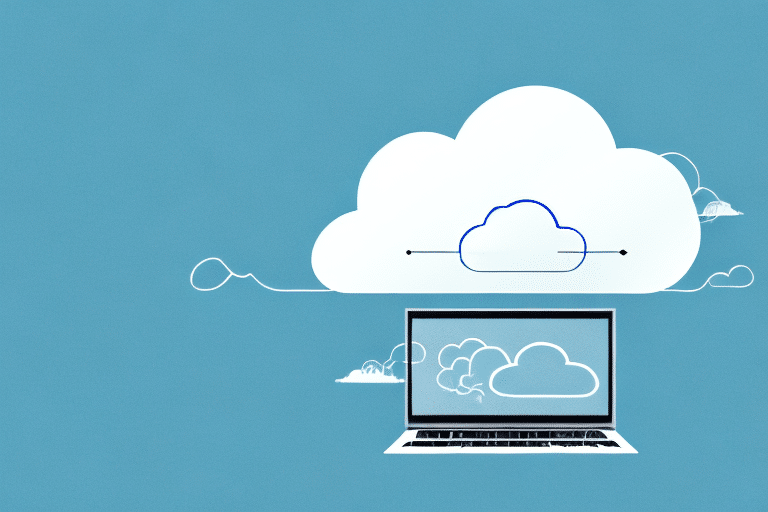Unleashing the power of Big Data Analytics has become a game-changer for businesses across industries. The ability to gather, analyze, and derive insights from vast amounts of data has revolutionized decision-making processes. It has also opened up new avenues for growth. And when it comes to harnessing this potential, Google Cloud Platform (GCP) stands out as a leader in providing robust tools and solutions.
In this blog post, we’ll dive into the world of Big Data Analytics on GCP and explore some fascinating case studies that highlight its transformative impact. From optimizing supply chains to enhancing customer experiences, these success stories will inspire you to unlock the full potential of your data.
So buckle up as we embark on a journey through real-world examples that demonstrate how Big Data Analytics on GCP can turn information into actionable insights like never before!
What is GCP?
Google Cloud Platform (GCP) is a suite of cloud computing services provided by Google. It offers a wide range of tools and technologies for businesses to leverage the power of big data analytics.
With GCP, organizations can store, process and analyze massive amounts of data in real-time. The platform provides scalable infrastructure and advanced analytics capabilities that enable companies to make data-driven decisions and gain valuable insights.
One key component of GCP is BigQuery, a fully-managed data warehouse that allows users to run fast SQL queries on large datasets. This makes it easy for businesses to extract meaningful information from their data without having to worry about managing hardware or software.
Another powerful tool offered by GCP is Dataflow, which enables organizations to build and execute complex data processing pipelines. With Dataflow, companies can transform and analyze streaming or batch data using Apache Beam, a unified programming model for distributed processing.
In addition, GCP provides machine learning services such as Cloud ML Engine, which allows businesses to train and deploy custom machine learning models at scale. This empowers organizations to leverage the predictive power of AI in their big data analysis efforts.
GCP offers a comprehensive set of tools and services that allow businesses to harness the potential of big data analytics. Whether it’s storing vast amounts of information, running complex queries or building advanced machine learning models – GCP provides the infrastructure and capabilities needed for successful big data analysis projects.
Case Studies
One of the best ways to understand the power and impact of big data analytics on Google Cloud Platform (GCP) is through real-life case studies. These examples showcase how businesses across various industries have leveraged GCP’s robust analytics capabilities to drive informed decision-making and achieve tangible results.
In the healthcare sector, a leading hospital used big data analytics on GCP to improve patient outcomes. By analyzing vast amounts of patient data, including medical records and lab results, they were able to identify patterns that helped predict potential health risks for individual patients. This proactive approach not only reduced hospital readmission rates but also saved lives.
In the retail industry, a global e-commerce giant utilized GCP’s advanced analytics tools to gain insights into customer behavior. By analyzing user-generated data from website interactions, purchase history, and social media activity, they were able to personalize product recommendations and optimize marketing campaigns. As a result, they experienced significant increases in customer engagement and sales revenue.
Another fascinating case study comes from the transportation sector where a logistics company utilized big data analytics on GCP to improve route optimization. By integrating real-time traffic data with historical transport information, they were able to identify bottlenecks in their delivery network and make timely adjustments. This led to improved operational efficiency, reduced fuel consumption, and faster delivery times.
These are just a few examples that highlight how big data analytics on GCP can revolutionize businesses. It can revolutionize businesses across different industries by unlocking valuable insights hidden within vast datasets. Whether it’s improving healthcare outcomes or enhancing customer experiences in retail or optimizing logistics operations – the possibilities are endless when it comes to leveraging the power of big data analytics on GCP.
Success Stories
Companies across industries have leveraged the power of Big Data Analytics on Google Cloud Platform (GCP) to drive innovation. It also helps them gain valuable insights, and enhance their business outcomes. Let’s take a look at some inspiring success stories.
1. Spotify:
The popular music streaming platform utilizes GCP’s big data capabilities to analyze user preferences and deliver personalized recommendations. By processing massive amounts of data, Spotify can understand listener behavior patterns and tailor content accordingly. This has significantly improved user engagement and retention rates.
2. Ocado:
The online grocery retailer uses GCP’s machine learning tools to optimize its operations and provide exceptional customer service. By analyzing real-time data from various sources such as sensors in warehouses, delivery routes, and customer feedback, Ocado can predict demand accurately, improve inventory management, and enhance delivery efficiency.
3. Twitter:
With an enormous volume of tweets being generated every second, Twitter relies on GCP for real-time analytics to monitor trending topics, detect spam or abusive content promptly, and recommend relevant accounts for users to follow. These analytics enable Twitter to maintain a safe environment while delivering a seamless user experience.
4. Colgate-Palmolive:
The global consumer goods company harnesses the power of big data analytics on GCP. It helps them gain actionable insights into market trends and consumer behavior. By analyzing social media conversations, product reviews, sales data, and more; Colgate-Palmolive can make informed decisions regarding new product launches or marketing strategies.
These are just a few examples that highlight how businesses are leveraging Big Data Analytics on GCP for impactful results. Whether it’s improving operational efficiency or enhancing customer experiences – the possibilities are endless with the right tools in place.
How to get started with Big Data Analytics on GCP
Getting started with Big Data Analytics on GCP may seem daunting. However, with the right approach and resources, you can dive into this exciting field. Here are a few steps to get you started.
Familiarize yourself with GCP’s suite of big data analytics tools. These include BigQuery for data warehousing and analysis, Dataproc for managing Apache Hadoop and Spark clusters. It also includes Dataflow for real-time streaming and batch processing. Each tool has its unique features and use cases.
Next, consider taking advantage of GCP’s extensive documentation and online tutorials. Google Cloud provides comprehensive guides that cover everything from basic concepts to advanced techniques in big data analytics. Additionally, there are plenty of online courses available that can help you deepen your understanding of the subject.
To gain hands-on experience, start by experimenting with small datasets before tackling larger ones. This will allow you to familiarize yourself with the tools’ functionalities without overwhelming yourself or your resources.
Additionally, join relevant communities such as forums or user groups. You can connect with experts in the field who have practical knowledge to share. Networking is essential when it comes to learning from others’ experiences.
Never hesitate to explore case studies and success stories related to big data analytics on GCP. There is much inspiration to be found in seeing how organizations leverage these tools effectively.
By following these steps and staying curious about new developments in the field, you’ll be well on your way towards becoming proficient in Big Data Analytics on GCP!
Conclusion
Big Data Analytics has revolutionized the way businesses operate by providing valuable insights and enabling data-driven decision making. With the ever-increasing volume, variety, and velocity of data generated today, it is crucial for organizations to leverage advanced analytics tools and platforms.
Google Cloud Platform (GCP) offers a robust infrastructure for Big Data Analytics with its powerful suite of tools. These tools include BigQuery, Dataflow, and Dataproc. Through real-world case studies and success stories, we have seen how GCP has helped organizations across different industries harness the power of their data to drive innovation, improve operations, and enhance customer experiences.
From retail giants optimizing inventory management to healthcare providers improving patient outcomes through predictive analytics, GCP’s Big Data Analytics capabilities have proven to be game-changers. By leveraging machine learning models on massive datasets or processing streaming data in real-time, companies can unlock new opportunities for growth and gain a competitive advantage in today’s fast-paced digital landscape.
To get started with Big Data Analytics on GCP:
- Define your goals: Identify specific business challenges you want to address or opportunities you want to explore using data analytics.
- Evaluate your infrastructure needs: Determine if you need scalable storage solutions like Google Cloud Storage or require distributed computing frameworks like Apache Spark.
- Choose the right toolset: Explore GCP’s wide range of Big Data Analytics tools such as BigQuery for querying large datasets or Pub/Sub for ingesting real-time streaming data.
- Leverage pre-built solutions: Take advantage of GCP’s pre-configured templates and industry-specific solutions that can accelerate your time-to-insight.
- Invest in training and expertise: Equip your team with the necessary skills through training programs or partner with experts who can guide you through implementation.





